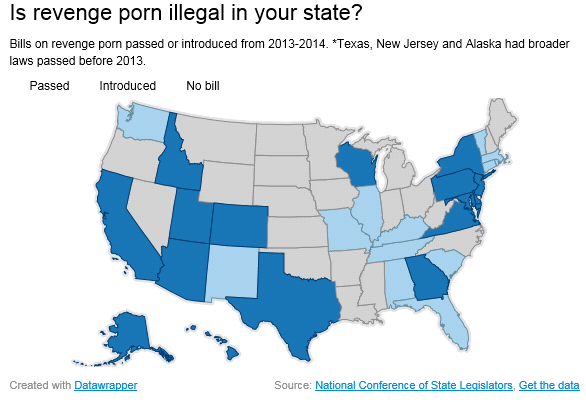Recently, a computer hacker stole hundreds of nude images of female celebrities and posted them on the internet. This violation of sexual privacy, although very publicized because of the celebrity status of the victims, is not an isolated incident. Releasing nude photographs without a woman’s consent, also called “revenge porn“, is becoming a bigger problem.
Exposing intimate photographs without a partner’s consent either during or after a relationship is not a newly invented crime. Ex-lovers have exposed private, intimate images to inflict pain and suffering for many years. But new technology has changed the game. Once these photographs are posted on the internet, they can ruin a woman and her family’s life. Victims have been forced to quit their jobs, change their names and uproot their families in order to survive these attacks.
In the majority of cases there is little that law enforcement can do to respond because most state laws do nothing to protect the victim. And, in spite of a growing number of these attacks, many states have been slow to react with legislation. This is due in large part to concerns that strengthening laws doing would impinge upon 1st amendment rights. In spite of the challenges, thirteen states have managed to enact tougher laws. Here in Washington, a bill was introduced this year, but it didn’t make it out of committee.

